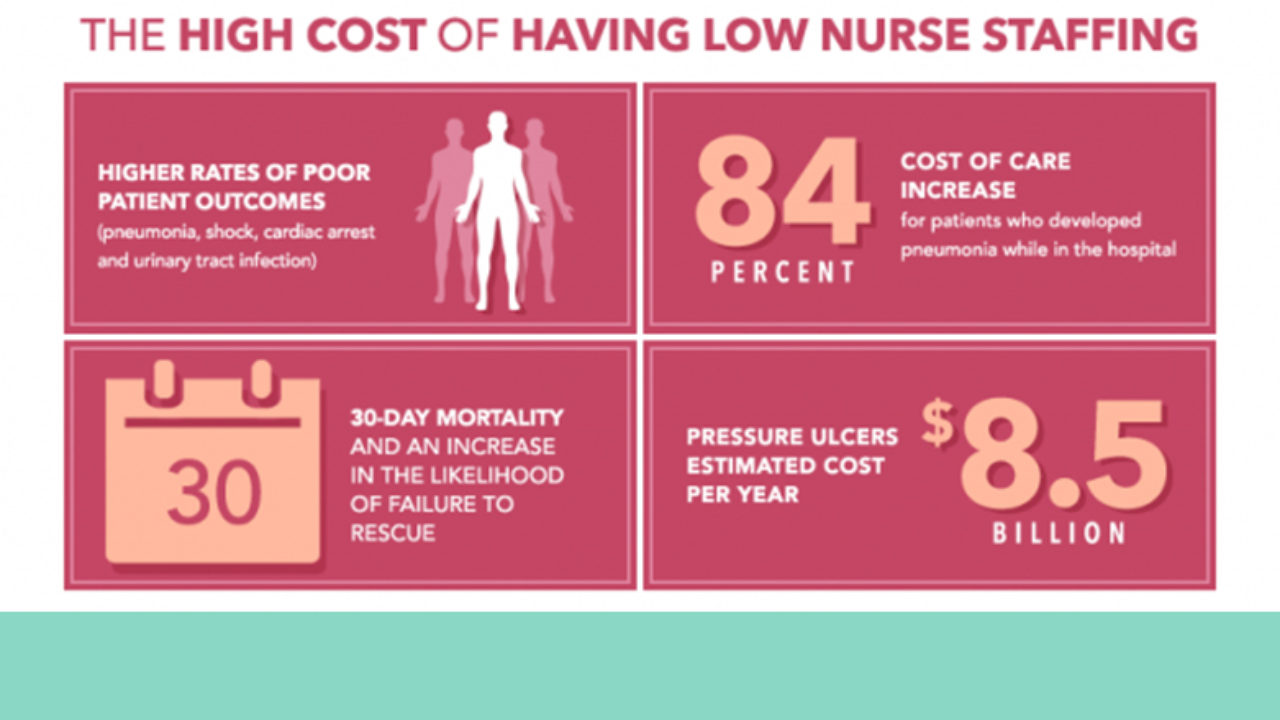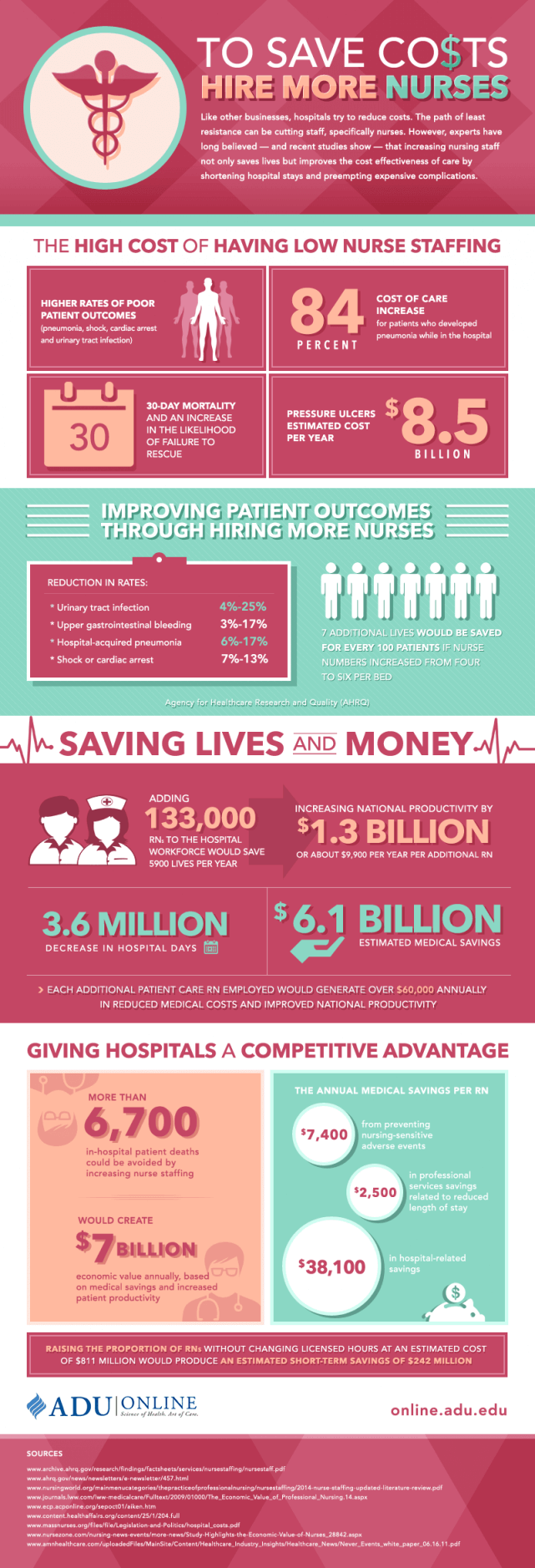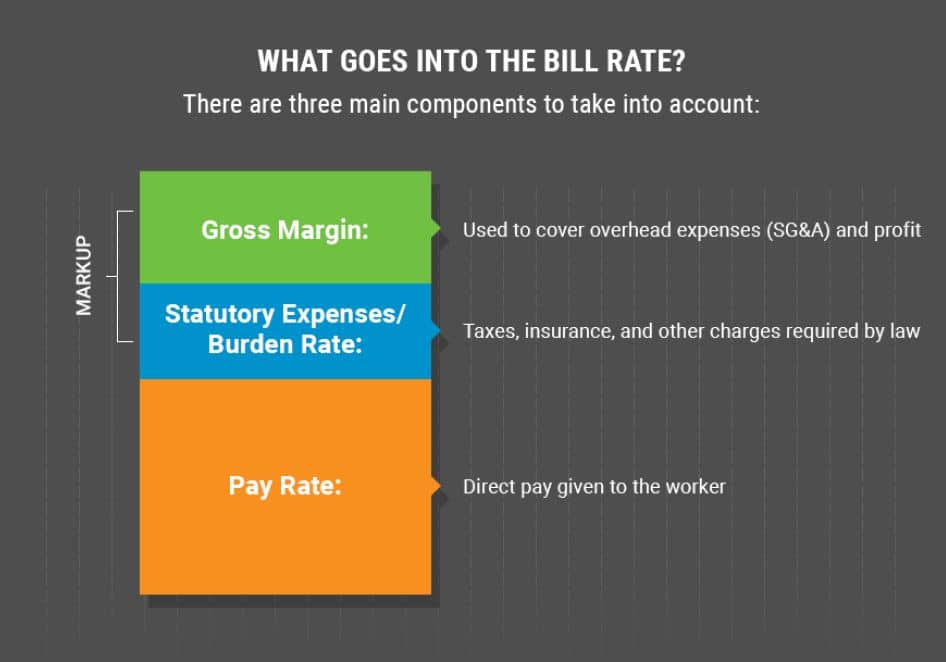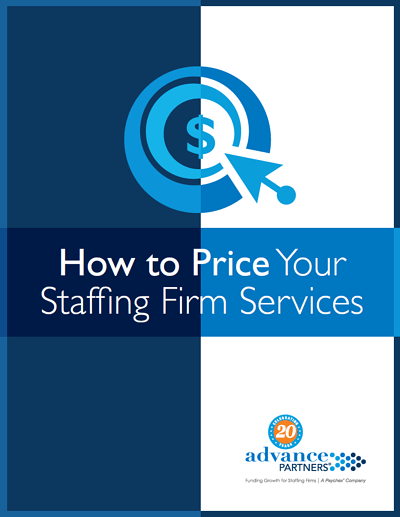Looking for a nurse staffing agency that offers competitive rates without compromising on quality? Look no further than Nurses On Call, Inc. With over 25 years of experience in the industry, Nurses On Call has been matching their skilled RNs and LPNs to medical facilities in the Pensacola, FL area. Their staff is available on a temporary or semi-permanent basis, providing flexibility to meet any staffing needs. Offering 24/7 on-call service, a local support staff, and an on-site Director of Nursing, Nurses On Call ensures a full-service experience that is both reliable and convenient. Don’t wait any longer – call Nurses On Call today at 850-474-9803 and take your career to new heights!

This image is property of scrubsmag.com.
Ensuring profitability while offering competitive rates
When it comes to nurse staffing, ensuring profitability while offering competitive rates is crucial for the success of any healthcare staffing agency. By striking the right balance between attracting qualified nurses and maintaining profitability, agencies can establish themselves as leaders in the industry. In this comprehensive article, we will explore various strategies and factors to consider in order to achieve this delicate balance.
Understanding the importance of competitive rates
The impact of competitive rates on attracting qualified nurses
Competitive rates play a vital role in attracting and retaining qualified nurses. Nurses are in high demand, and offering competitive rates can give your agency an edge in recruiting top talent. When nurses are searching for employment opportunities, they often compare compensation packages offered by different agencies. By offering rates that are competitive with or higher than industry standards, you can position your agency as an attractive choice for skilled nurses.
Staying ahead of the competition
In today’s competitive healthcare staffing market, it is crucial to stay ahead of the competition. This means keeping a close eye on industry trends and adjusting your rates accordingly. By offering competitive rates, you can differentiate your agency from others and attract both experienced and newly qualified nurses. Regularly evaluating and adjusting your rates based on market demand and industry standards will ensure that your agency remains competitive and sought after.
Balancing profitability and employee compensation
While competitive rates are essential for attracting nurses, it is equally important to balance profitability with employee compensation. Profitability allows your agency to invest in resources, technology, and employee development, all of which contribute to long-term success. By finding the right balance between offering competitive rates and maintaining profitability, you can create a sustainable business model that benefits both your agency and your nurses.
Building a strong reputation in the industry
Competitive rates can contribute to building a strong reputation for your staffing agency. When nurses and clients consistently receive fair and competitive compensation, your agency gains a reputation for treating its employees well. This positive reputation can lead to increased loyalty, word-of-mouth referrals, and a larger pool of qualified nurses seeking opportunities with your agency. Ultimately, establishing a strong reputation in the industry can contribute to the profitability and success of your nurse staffing agency.

This image is property of www.ahu.edu.
Factors to consider for profitable nurse staffing
Several factors come into play when considering profitable nurse staffing. These factors should be evaluated carefully to ensure that your agency can optimize its resources and achieve long-term profitability.
Market demand for nurses
The demand for nurses varies by location and healthcare setting. Understanding the market demand for nurses in your area is critical in determining the rates you can offer. Conducting market research and analyzing trends can help you align your staffing strategies with the current demand, ensuring that you can effectively meet the needs of healthcare facilities while remaining profitable.
Local labor market conditions
The local labor market conditions can significantly impact your agency’s profitability. Factors such as shortages of nurses, high turnover rates, or an oversupply of nurses can influence the availability of qualified candidates and the rates you can offer. By staying informed about the local labor market conditions, you can make strategic decisions to maximize profitability while attracting and retaining top talent.
Supply and demand dynamics
Understanding the supply and demand dynamics within the nurse staffing industry is crucial. The ratio of available nurses to job openings can affect the rates you can offer. In regions where the demand for nurses exceeds the available supply, agencies may need to offer higher rates to attract skilled nurses. Conversely, in areas where the supply of nurses is higher than the demand, agencies can adjust their rates accordingly, potentially resulting in cost savings and increased profitability.
Nurse certification and specialization
Nurse certification and specialization can also impact the rates that can be offered by your agency. Nurses with specialized certifications or advanced degrees often command higher compensation due to their specialized expertise. By considering the qualifications and certifications required for different positions, you can accurately assess the rates you can offer while ensuring that your agency remains profitable.
Experience and qualifications
Nurse experience and qualifications also play a role in determining the rates that can be offered. Nurses with extensive experience or specialized skills often expect higher compensation. On the other hand, newly qualified nurses may be willing to work for lower rates to gain valuable experience. By evaluating the experience and qualifications required for different positions, you can establish competitive rates that reflect the value and expertise of your nursing staff.
Geographic location and cost of living
Geographic location and the cost of living are important factors to consider when determining competitive rates. The cost of living can vary significantly from one region to another, and nurses’ compensation should reflect these differences. Ensuring that your agency offers rates that align with the cost of living in your area can help attract and retain nurses while maintaining profitability.
Facility reputation and work environment
Nurses often consider the reputation of the healthcare facility and the work environment when choosing job opportunities. Facilities with positive reputations and supportive work environments may be able to attract nurses with more competitive rates. By partnering with reputable healthcare facilities and promoting a positive work environment, your agency can leverage these factors to offer competitive rates without compromising profitability.
These are just a few of the many factors that can influence the profitability of nurse staffing. By carefully considering these factors, your agency can develop effective strategies to optimize profitability while still offering competitive rates that attract and retain qualified nurses.
Optimizing recruitment and retention strategies
Recruiting and retaining talented nurses is essential for the profitability of your agency. An effective recruitment and retention strategy can help you attract and keep the best nurses, ensuring the success of your nurse staffing operations.
Developing a compelling employee value proposition
Creating a compelling employee value proposition is crucial for attracting top talent. This involves highlighting the unique benefits and opportunities your agency offers to nurses. Beyond competitive rates, your value proposition may include flexible scheduling options, professional development opportunities, and a positive work culture. By showcasing these benefits, you can differentiate your agency from competitors and attract nurses who are seeking a fulfilling and rewarding work experience.
Implementing targeted recruitment campaigns
Targeted recruitment campaigns can help you reach qualified nurses who are actively seeking employment opportunities. By identifying the channels and platforms that nurses frequent during their job search, you can tailor your recruitment efforts for maximum impact. Utilize online job boards, social media platforms, and industry-specific websites to effectively promote your agency’s opportunities. Additionally, consider partnering with nursing schools and colleges to connect with students who are preparing to enter the workforce.
Leveraging social media and online platforms
Social media and online platforms have become powerful tools for recruitment in today’s digital age. Utilize platforms such as LinkedIn, Facebook, and Instagram to showcase your agency’s culture, opportunities, and success stories. Engage with potential candidates by sharing informative content and responding to inquiries promptly. By maintaining an active online presence, you can attract and engage with nurses who are seeking new employment opportunities.
Establishing effective referral programs
Referrals from current employees can be an invaluable source of top talent. Establishing an effective referral program incentivizes your nurses to refer their professional contacts to your agency. Consider providing monetary rewards, recognition, or other incentives to employees who refer successful candidates. This not only helps you tap into the networks of your current nursing staff but also reinforces a positive work culture and demonstrates that your agency values its employees’ contributions.
Investing in orientation and onboarding processes
An effective orientation and onboarding process can significantly impact nurse retention rates. By investing in comprehensive orientation programs, you can help new nurses feel supported and confident in their roles from the start. Ensure that new hires receive thorough training, have access to necessary resources, and are paired with experienced mentors. A well-structured onboarding process can contribute to higher job satisfaction, lower turnover rates, and increased profitability in the long run.
Creating a positive and supportive work culture
A positive and supportive work culture is essential for nurse retention. Nurses who feel valued, supported, and respected are more likely to remain with your agency for the long term. Foster a positive work culture by promoting open communication, recognizing and rewarding achievements, and actively addressing and resolving any issues or concerns that arise. A supportive work environment can help create a sense of belonging and loyalty among nurses, increasing retention rates and ultimately contributing to the profitability of your agency.
Providing competitive benefits and incentives
Beyond competitive rates, offering additional benefits and incentives can help attract and retain talented nurses. Consider offering healthcare benefits, retirement plans, and flexible scheduling options. Incentives such as bonuses, performance rewards, and opportunities for advancement can also contribute to nurse satisfaction and retention. By providing a comprehensive compensation package that goes beyond just rates, you can differentiate your agency from competitors and increase the likelihood of attracting and retaining top talent.
Evaluating and addressing employee turnover
High turnover rates can have a significant impact on the profitability of your agency. It is essential to regularly evaluate and address employee turnover by identifying the root causes and implementing strategies to mitigate turnover. Conduct exit interviews, collect feedback from nurses, and analyze turnover trends to identify areas for improvement. Address any concerns or issues promptly and make necessary changes to create a work environment that encourages long-term employment with your agency.
By optimizing your recruitment and retention strategies, you can attract and retain top nursing talent. A strong team of dedicated nurses is essential for the profitability of your agency and can contribute to the overall success of your nurse staffing operations.

This image is property of www.advancepartners.com.
Utilizing technology for cost-efficiency
Technology plays a crucial role in maximizing cost-efficiency in nurse staffing operations. By leveraging the right tools and systems, you can streamline processes, increase productivity, and lower administrative overheads, contributing to the profitability of your agency.
Implementing an efficient applicant tracking system
An efficient applicant tracking system (ATS) can significantly streamline your recruitment and hiring processes. ATS software allows you to automate various tasks such as job posting, resume screening, interview scheduling, and candidate communication. By automating these processes, you can reduce administrative burdens, increase efficiency, and ultimately save on recruitment costs.
Automating scheduling and shift management
Automating scheduling and shift management processes can help optimize resource allocation and reduce costs. Scheduling software allows you to efficiently track nurse availability, match them to open shifts, and manage last-minute changes or cancellations. By automating these processes, you can minimize scheduling errors, eliminate manual paperwork, and ensure optimal staffing levels without incurring overtime or extra staffing costs.
Utilizing telehealth and remote monitoring technologies
Telehealth and remote monitoring technologies are gaining prominence in the healthcare industry and can contribute to cost-efficiency in nurse staffing. By utilizing these technologies, nurses can provide remote patient care, reducing the need for in-person staffing and minimizing travel expenses. Additionally, remote monitoring technologies allow for real-time tracking of patient health status, enabling timely interventions and potentially reducing the need for hospital readmissions.
Leveraging data analytics for workforce planning
Data analytics can provide valuable insights for effective workforce planning. By analyzing historical staffing data, demand patterns, and nurse performance metrics, you can make informed decisions about staffing levels, work schedules, and performance optimization. Utilizing data analytics tools can help you identify areas for improvement, predict future staffing needs, and optimize resource allocation, ultimately increasing cost-efficiency and profitability.
Enhancing communication and collaboration
Effective communication and collaboration are vital for cost-efficiency in nurse staffing. By implementing communication platforms, such as instant messaging apps or project management software, you can facilitate seamless and timely communication between nurses, clients, and agency staff. Clear and efficient communication helps prevent misunderstandings, reduces errors, and enhances overall productivity, ensuring that resources are utilized optimally.
By strategically utilizing technology, you can increase cost-efficiency and position your agency for long-term profitability. Automation, telehealth, data analytics, and enhanced communication systems can all contribute to streamlining processes, reducing costs, and improving overall operational effectiveness.
Streamlining administrative processes
Streamlining administrative processes is essential for ensuring cost-efficiency and maximizing profitability in nurse staffing operations. By automating tasks, reducing paperwork, and standardizing procedures, you can optimize workflow, increase productivity, and minimize administrative overheads.
Implementing electronic health records (EHR) systems
Implementing electronic health records (EHR) systems can significantly streamline administrative processes. EHR systems allow for efficient and secure digital documentation, eliminating the need for manual paperwork and reducing the risk of errors. By digitizing medical records, scheduling information, and other essential documents, you can improve efficiency, enhance patient care, and free up administrative resources for more critical tasks.
Automating billing and payroll processes
Billing and payroll processes can be time-consuming and prone to errors when done manually. By implementing automated billing and payroll systems, you can streamline these processes, reduce the risk of errors, and improve accuracy and efficiency. Automated systems can generate invoices, track billable hours, process payroll, and handle tax withholdings, ensuring that nurses are paid accurately and on time, while minimizing administrative efforts.
Reducing paperwork and manual documentation
Reducing paperwork and manual documentation can significantly improve efficiency and reduce administrative burdens. By shifting to digital forms, online portals, and electronic signatures, you can eliminate the need for physical paperwork, improve data accuracy, and speed up administrative processes. By digitizing information, nurses and administrative staff can access and update records more efficiently, reducing the time spent on administrative tasks.
Implementing efficient time and attendance tracking
Efficient time and attendance tracking systems can optimize resource allocation and reduce errors. By implementing electronic timekeeping systems, you can accurately track nurse work hours, breaks, and overtime. These systems can also help identify trends and patterns in scheduling, aiding in improving efficiency and ensuring optimal staffing levels.
Standardizing policies and procedures
Standardizing policies and procedures is crucial for efficient and consistent operations. By establishing clear guidelines and protocols, you can ensure that administrative processes are streamlined, minimizing confusion, errors, and delays. Standardization can also contribute to a positive work culture by providing clear expectations and reducing unnecessary administrative burdens.
By streamlining administrative processes, you can optimize resources, increase productivity, and minimize administrative overheads. Automation, digitization, and standardization can all contribute to efficient operations, ensuring that your agency remains cost-efficient and profitable.

This image is property of blog.bluepipes.com.
Investing in continuous professional development
Investing in continuous professional development (CPD) for nurses is an essential component of maintaining a skilled and competitive workforce. By providing ongoing training, education opportunities, and support for nurses to pursue advanced certifications, you can enhance their knowledge and skills, ultimately benefiting both the nurses and your agency.
Providing ongoing training and education opportunities
Providing ongoing training and education opportunities is crucial for nurses to stay up to date with the latest advancements in healthcare. By offering in-house training programs, workshops, and seminars, you can support nurses in continuously improving their knowledge and skills. Additionally, consider partnering with educational institutions or online learning platforms to provide access to formal education programs that can help nurses further their professional development.
Supporting nurses in pursuing advanced certifications
Encouraging nurses to pursue advanced certifications can enhance their expertise and value within your agency. By offering financial support, flexible scheduling options, and study materials, you can motivate nurses to pursue advanced certifications in their specific areas of interest or specialization. Advanced certifications can not only contribute to enhanced patient care but also increase the marketability and attractiveness of your agency to healthcare facilities.
Encouraging participation in professional associations
Participation in professional associations can provide nurses with valuable networking opportunities and access to resources and industry updates. Encourage nurses to join and actively participate in relevant professional associations related to their specialty or field of interest. Supporting membership fees and facilitating attendance at conferences and events can help nurses stay connected with industry trends and best practices, enriching their professional development.
Promoting a culture of continuous learning
Creating a culture of continuous learning within your agency is essential for nurse professional development. Encourage nurses to share their knowledge and experiences through internal trainings, workshops, or lunch-and-learn sessions. Promote a collaborative environment where nurses can learn from one another, exchange best practices, and actively engage in their professional growth. By fostering a culture of continuous learning, you can cultivate a highly skilled workforce that adds value to your agency.
By investing in continuous professional development for nurses, you can enhance their knowledge, skills, and marketability. Continuous learning opportunities not only contribute to nurse job satisfaction but also position your agency as a leader in providing high-quality healthcare staffing services.
Developing strong relationships with clients
Developing strong relationships with clients is crucial for the long-term success and profitability of your nurse staffing agency. By understanding their needs, providing exceptional customer service, and offering flexible staffing solutions, you can establish mutually beneficial partnerships that contribute to the growth of your business.
Understanding client needs and expectations
Taking the time to understand your clients’ needs and expectations is essential for delivering exceptional service. Regularly communicate with clients to gain insights into their staffing requirements, preferred communication methods, and unique facility dynamics. By demonstrating a thorough understanding of their needs, you can tailor your services to meet their specific expectations, building trust and fostering long-term relationships.
Building trust and fostering open communication
Trust is the foundation of a strong client relationship. By consistently delivering on your promises, being transparent in your communication, and addressing any concerns or issues promptly, you can foster trust and confidence in your agency’s ability to meet their staffing needs. Engage in open and honest communication, listen actively to their feedback, and be proactive in resolving any challenges that arise. By building trust and maintaining open lines of communication, you can cultivate long-lasting partnerships with your clients.
Providing exceptional customer service
Exceptional customer service sets your agency apart from the competition. Strive to exceed client expectations by consistently delivering high-quality service, being responsive to their needs, and going the extra mile to address any requests or concerns. Foster a customer-centric approach within your agency and empower your staff to provide personalized and attentive service. By consistently providing exceptional customer service, you can enhance client satisfaction and loyalty.
Offering flexible staffing solutions
Flexibility in staffing solutions is crucial for meeting the diverse needs of your clients. Some healthcare facilities may require temporary or contract nurses for specific assignments, while others may need long-term staffing solutions. By offering a range of flexible options, such as per diem, contract, or temporary-to-permanent placements, you can cater to the unique demands of each client. Flexibility in staffing allows your agency to accommodate fluctuating demand, potentially leading to increased client satisfaction and repeat business.
Responding quickly to client requests
Timeliness and responsiveness are key factors in maintaining strong client relationships. Respond to client requests promptly, whether it’s for additional staffing, schedule changes, or resolving any issues that arise. Make it a priority to be accessible and available to your clients, ensuring that their needs are addressed in a timely manner. By demonstrating responsiveness and a commitment to meeting their needs, you can build trust and strengthen your agency’s reputation.
By developing strong relationships with your clients, you can position your agency as a trusted partner in meeting their staffing needs. Exceptional customer service, flexibility in staffing solutions, and open communication all contribute to long-term client satisfaction, loyalty, and profitability.

This image is property of www.advancepartners.com.
Effective budgeting and resource allocation
Effective budgeting and resource allocation are essential for maximizing profitability in nurse staffing. By analyzing costs, setting appropriate pricing structures, aligning staffing levels with client demand, optimizing resource utilization, and identifying cost-saving opportunities, you can ensure that your agency operates efficiently and remains financially sustainable.
Analyzing costs and revenue streams
Analyzing costs and revenue streams is the first step in effective budgeting. Assess the direct and indirect costs associated with nurse staffing, including recruitment, training, payroll, and administrative overheads. Simultaneously, evaluate your revenue streams, taking into account the rates you charge clients, the volume of staffing placements, and any additional sources of income. By closely examining the financial aspects of your agency, you can identify areas for improvement and determine how to maximize profitability.
Setting appropriate pricing structures
Setting appropriate pricing structures is crucial for maintaining profitability. Assess your costs, market demand, and the value your agency provides to clients to determine the rates you can charge. Ideally, your pricing should cover all costs, provide a reasonable profit margin, and remain competitive within the market. Regularly evaluate your pricing structures to ensure they align with industry standards and reflect the value of your services.
Aligning staffing levels with client demand
Aligning staffing levels with client demand is essential for efficient resource allocation. Conduct regular assessments of client needs and market demand to determine the optimal number of nurses and skill sets required. Adjust staffing levels based on historical data, projected demand, and any anticipated changes in client requirements. Balancing the availability of nurses with the demand for staffing can help minimize idle time, avoid overstaffing, and optimize resource utilization.
Optimizing resource utilization
Optimizing resource utilization involves making the most efficient use of all available resources. This includes not only nurses but also support staff, technology, and facilities. Regularly evaluate your resource utilization metrics, such as nurse productivity and efficiency rates, to identify areas for improvement. By streamlining processes, minimizing waste, and maximizing the use of available resources, you can reduce costs, increase productivity, and contribute to overall profitability.
Identifying cost-saving opportunities
Identifying cost-saving opportunities is an ongoing process that requires continuous evaluation and analysis. Regularly assess all areas of your operations, from recruitment and training to administrative processes and technology investments. Look for areas where costs can be reduced without compromising quality or service. For example, implementing technology to automate manual tasks can help streamline operations and reduce administrative overheads. By proactively identifying and implementing cost-saving measures, you can increase profitability without sacrificing the quality of your service.
Effective budgeting and resource allocation are essential for maintaining the financial stability and profitability of your nurse staffing agency. By closely monitoring costs, setting appropriate pricing structures, aligning staffing levels with demand, optimizing resource utilization, and continuously identifying cost-saving opportunities, you can ensure that your agency remains financially sustainable and successful.
Monitoring and adjusting rates
Monitoring and adjusting rates is crucial for ensuring the profitability of your nurse staffing agency. By regularly evaluating market trends, measuring client satisfaction, tracking financial performance, benchmarking against industry standards, and making data-driven decisions for rate adjustments, you can maintain a competitive edge while maximizing profitability.
Assessing the attraction and retention of nurses
Monitoring the attraction and retention of nurses is essential for understanding the effectiveness of your rates. Track metrics such as the number of qualified applicants, time-to-fill positions, and nurse turnover rates. If you notice a decline in qualified applicants or high turnover rates, it may indicate that your rates are not competitive enough to attract and retain skilled nurses. Use this information to evaluate the adequacy of your rates and make necessary adjustments to remain competitive.
Measuring client satisfaction and loyalty
Client satisfaction and loyalty are key indicators of the effectiveness of your rates. Regularly survey your clients to assess their satisfaction with the quality of nursing staff, the responsiveness of your agency, and the overall value they receive. Identify any areas for improvement and address their feedback promptly. By measuring and addressing client satisfaction, you can ensure that your rates align with their expectations and maintain long-term partnerships.
Tracking financial performance and profitability
Tracking financial performance and profitability is crucial for understanding the health of your agency. Analyze financial statements, such as income statements, balance sheets, and cash flow statements, to evaluate your agency’s financial position. Regularly review key performance indicators, such as gross margin, net profit, and return on investment, to assess profitability. By closely monitoring financial performance, you can identify areas of strength and weakness, make informed decisions, and adjust rates as needed.
Benchmarking against industry standards
Benchmarking your rates against industry standards can provide valuable insights into your agency’s competitiveness. Research industry benchmarks and compare your rates to those of similar agencies in terms of geographic location, services offered, and nurse qualifications. Assess whether your rates align with industry averages or if adjustments are needed to remain competitive. Benchmarking allows you to understand how your rates compare to industry standards, identify opportunities for improvement, and make necessary adjustments to maintain profitability.
Making data-driven decisions for rate adjustments
Data-driven decision-making is essential when adjusting rates. By analyzing internal and external data, such as market trends, cost analysis, client feedback, and financial performance, you can make informed decisions about rate adjustments. Consider the impact of rate adjustments on nurse attraction and retention, client satisfaction, and overall profitability. Strive to find the right balance between offering competitive rates and maintaining profitability, using data as a guide to inform your rate adjustment strategies.
By monitoring and adjusting rates based on market trends, client satisfaction, financial performance, and industry benchmarks, you can ensure that your agency remains competitive while maximizing profitability. Continuously evaluating and adjusting rates is essential to stay ahead of the competition and maintain a sustainable business model.
Evaluating the impact of competitive rates
Evaluating the impact of competitive rates is crucial for understanding the effectiveness of your pricing strategies. By assessing the attraction and retention of nurses, measuring client satisfaction and loyalty, tracking financial performance and profitability, benchmarking against industry standards, and making data-driven decisions for rate adjustments, you can gain insights into how competitive rates are impacting your agency’s success.
Assessing the attraction and retention of nurses
Monitor the attraction and retention of nurses to evaluate the impact of your rates. Are you attracting qualified candidates? Are nurses leaving your agency for better compensation elsewhere? Regularly assess metrics such as the number of applicants, time-to-fill positions, and turnover rates. If you notice a decline in qualified applicants or high turnover rates, it may indicate that your rates are not competitive enough to attract and retain skilled nurses.
Measuring client satisfaction and loyalty
Client satisfaction and loyalty provide essential feedback on the effectiveness of your rates. Survey your clients on their satisfaction with the quality of nursing staff, the responsiveness of your agency, and the overall value they receive. Assess whether your rates align with their expectations and if they perceive your agency’s rates to be competitive. By regularly measuring client satisfaction, you can gauge how well your rates are meeting their needs and adjust your pricing strategies as needed.
Tracking financial performance and profitability
Tracking financial performance and profitability is key to understanding the impact of your rates on the success of your agency. Analyze financial statements and key performance indicators to evaluate your agency’s financial position. Are your rates generating the desired level of profitability? Assess whether adjustments to your pricing structures are necessary to optimize financial performance. By closely monitoring financial performance, you can identify areas for improvement and make informed decisions about rate adjustments.
Benchmarking against industry standards
Benchmark your rates against industry standards to gain insights into their competitiveness. Research average rates charged by similar agencies in terms of geographic location, services offered, and nurse qualifications. Compare your rates to industry averages to determine if adjustments are needed to remain competitive. Benchmarking allows you to understand how your rates stack up against industry standards, identify areas for improvement, and make the necessary adjustments to maintain profitability.
Making data-driven decisions for rate adjustments
Use data to guide your decision-making process when adjusting rates. Analyze internal and external data, such as market trends, cost analysis, client feedback, and financial performance, to inform your rate adjustment strategies. Consider the impact of rate adjustments on nurse attraction and retention, client satisfaction, and overall profitability. By making data-driven decisions, you can ensure that rate adjustments are strategic and align with your agency’s long-term goals.
By evaluating the impact of competitive rates, you can gain valuable insights into the effectiveness of your pricing strategies. Assessing the attraction and retention of nurses, measuring client satisfaction and loyalty, tracking financial performance, benchmarking against industry standards, and making data-driven decisions for rate adjustments are all important steps in optimizing the impact of your rates on your agency’s success.





